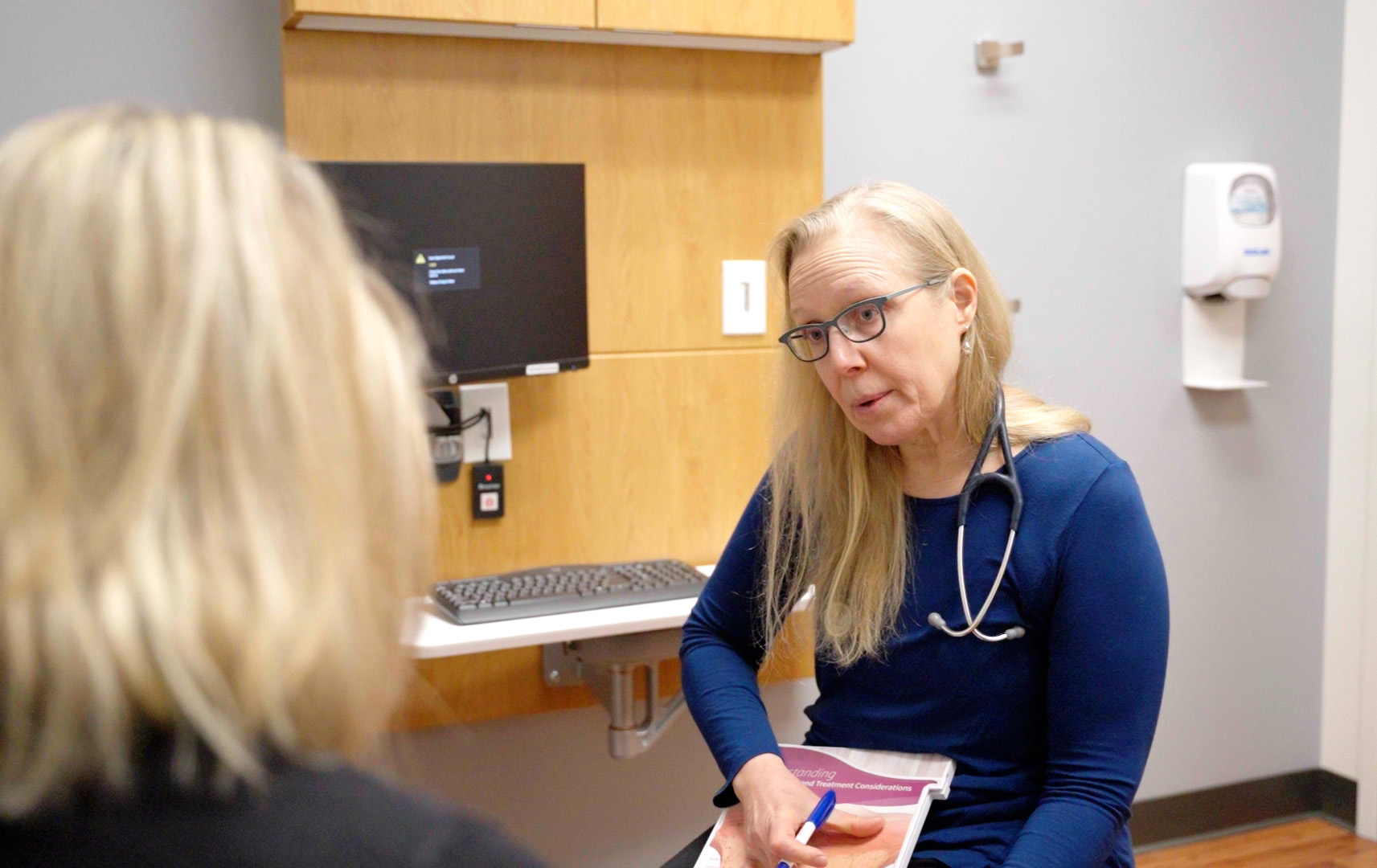Breast Cancer Awareness Month Shines Spotlight on High-Risk Women
10/1/2025

Dr. Cecilia Stroede, Aspirus Breast Surgeon
Breast Cancer Awareness Month is a reminder that understanding your personal risk could save your life. For women at higher risk, starting early conversations with a specialist can make a crucial difference.
According to the American Cancer Society (ACS), one in eight women in the U.S. will develop breast cancer in their lifetime. While many women share common concerns, not everyone faces the same level of risk. Family history, genetics, and other health factors can increase your chances of developing breast cancer.
“Some women are at higher risk of developing breast cancer, so we create personalized, risk-adapted screening plans to help manage their health in the best way possible,” says Dr. Cecilia Stroede, Breast Surgeon for Aspirus Health, who cares for high-risk patients at Aspirus Breast Care Specialists.
Who is considered high-risk?
The ACS and the National Comprehensive Cancer Network (NCCN) identify women with any of the following as generally higher risk:
- Personal or family history of cancer
- Dense breasts (detected during a routine mammogram)
- Gene mutations such as BRCA1, BRCA2, ATM, CHEK2, PALB2, TP53, or PTEN
- Prior radiation therapy to the chest
- Ashkenazi Jewish ancestry
- Atypical ductal hyperplasia (ADH), atypical lobular hyperplasia (ALH), or lobular carcinoma in situ (LCIS)
What can women do?
If you may be at increased risk, a breast specialist can provide:
- Personalized screening plans (which may include additional screenings like breast MRI)
- Prevention strategies to lower your risk
These proactive steps can help detect breast cancer earlier—when it’s most treatable—or even reduce the chances of it developing.
For more information, visit aspirus.org/breast.

Back to all Posts